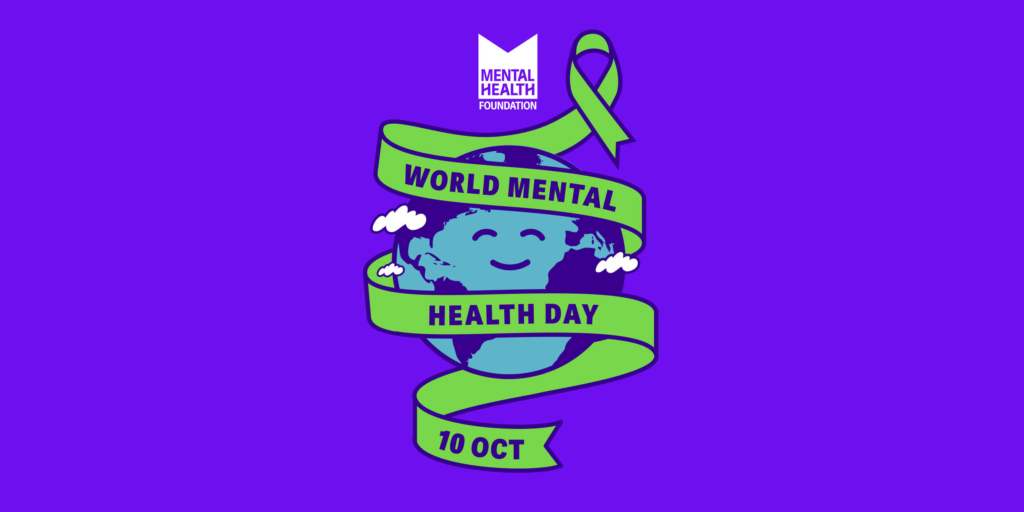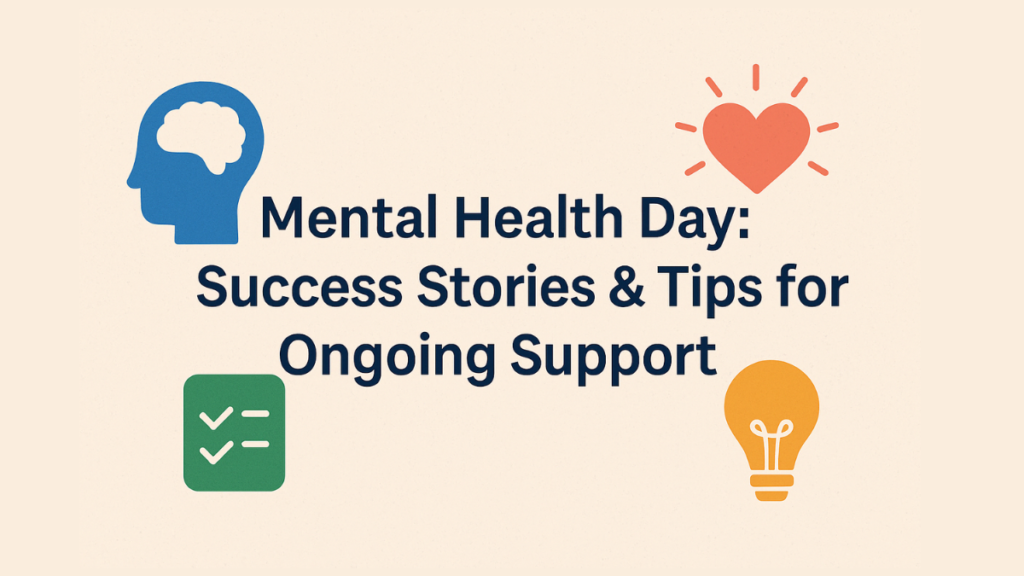Discover inspiring Mental Health Day success stories and practical tips for ongoing support. Learn how to build lasting mental wellness through real-life insights and expert advice.
also read: https://babessproduct.com/the-role-of-your-dentist-in-preventing-oral-health-issues/
Introduction
Mental health is more than just a trending topic—it’s a vital part of overall well-being. Observing a Mental Health Day has become a meaningful practice for many individuals, workplaces, and communities. But beyond the awareness campaigns, what truly makes a difference are the personal success stories and the strategies that keep the momentum going. In this article, we’ll explore real-life examples of transformation, delve into expert-backed tips, and guide you on maintaining long-term support for mental wellness.
What is a Mental Health Day?
A Mental Health Day is a designated time off from work, school, or daily responsibilities to focus solely on mental well-being. It is an intentional break to recharge, rest, and reset. Whether it’s spent meditating, seeing a therapist, or simply relaxing without guilt, a Mental Health Day allows individuals to prioritize emotional health.

Workplaces, schools, and governments are increasingly recognizing the importance of these days. Some companies even offer paid Mental Health Days to support their employees’ well-being. The goal is simple: reduce burnout, prevent stress-related illnesses, and create a culture where mental health is treated as seriously as physical health.
Mental Health Day: Success Stories from Real People
1. Sarah’s Journey with Burnout Recovery
Sarah, a high-performing marketing executive, started experiencing burnout symptoms—insomnia, anxiety, and emotional exhaustion. Initially hesitant to take time off, she finally used a Mental Health Day. That one day led her to therapy, where she eventually created a self-care routine. Today, Sarah credits that first Mental Health Day for redirecting her life and career toward balance.
2. David’s Post-Traumatic Growth
After losing a loved one, David struggled with depression. He took several Mental Health Days, which allowed him the space to grieve, attend support groups, and build resilience. He now volunteers for a suicide prevention organization, helping others see that healing is possible.
3. Maya’s Workplace Mental Health Advocacy
Maya took a Mental Health Day after suffering a panic attack at work. After returning, she spoke with HR and helped her company implement monthly wellness days and peer-support check-ins. Her bravery led to a healthier, more compassionate work environment for everyone.
Why Mental Health Days Matter
Mental Health Days are not just days off—they’re acts of emotional preservation and growth. Here’s why they matter:
- Early Intervention: Taking a day off when symptoms first appear helps prevent long-term issues.
- Reduced Burnout: Breaks give the brain time to rest, improving focus and performance later.
- Increased Productivity: Well-rested minds are more creative, motivated, and efficient.
- Stronger Relationships: Individuals who take care of their mental health often build better relationships with others.
Tips for Making the Most of a Mental Health Day
Taking a Mental Health Day is just the first step. Here’s how to make it effective:

1. Plan with Purpose
Decide in advance how you want to spend your day. Whether it’s journaling, taking a nature walk, or attending therapy, planning helps ensure the day is truly beneficial.
2. Disconnect to Reconnect
Unplugging from work emails and social media allows the mind to relax. Use the time to reconnect with yourself, your passions, or loved ones.
3. Practice Self-Care
Engage in activities that bring you peace—reading, yoga, cooking, or even just napping. Listen to what your body and mind need.
4. Reflect and Journal
Use this day to reflect. Journaling your thoughts can provide insight into your mental state and help track progress.
5. Seek Support
Use the opportunity to talk to a therapist, coach, or trusted friend. Sharing what you’re going through lightens the emotional load.
Table: Activities to Consider on a Mental Health Day
| Activity | Benefit | Ideal For |
|---|---|---|
| Meditation | Reduces stress and increases focus | Anxiety, Overthinking |
| Nature Walks | Boosts mood and mental clarity | Burnout, Mental Fog |
| Therapy Session | Professional emotional support | Ongoing mental health conditions |
| Journaling | Improves self-awareness and clarity | Emotional expression and reflection |
| Creative Hobbies | Enhances relaxation and dopamine levels | Depression, Boredom |
| Digital Detox | Reduces stimulation and anxiety | Social media stress, Sleep issues |
Ongoing Support: Turning One Day Into a Habit
A single Mental Health Day is powerful, but consistent care is what brings transformation. Ongoing support strategies include:
Routine Mental Health Check-Ins
Schedule weekly or monthly check-ins with yourself or a therapist. These moments of reflection can catch signs of stress before they grow.
Building a Support Network
Stay connected with friends, family, or mental health communities. Emotional support systems reduce isolation and encourage healing.
Continuous Learning
Attend workshops, read books, or listen to podcasts on mental health. Staying informed keeps you engaged in your wellness journey.
Set Boundaries
Learn to say no without guilt. Whether it’s work or personal life, setting boundaries prevents emotional exhaustion.
How Employers Can Support Mental Health Days

Organizations play a critical role in promoting mental well-being. Here’s how employers can help:
- Normalize Mental Health Days: Include them in PTO policies and communicate their value.
- Provide Mental Health Resources: Offer access to counselors, EAPs (Employee Assistance Programs), and wellness tools.
- Create a Safe Space: Encourage open conversations without judgment or stigma.
- Offer Flexibility: Allow flexible work hours or hybrid models to reduce stress.
By embedding mental health into company culture, businesses not only boost employee satisfaction but also improve performance and retention.
Mental Health Day: The Ripple Effect
When one person takes a Mental Health Day and shares their experience, it inspires others to do the same. These individual acts create ripple effects—changing workplaces, families, and communities. Over time, this collective awareness helps remove the stigma and makes mental health care more accessible and accepted.
FAQs About Mental Health Day: Success Stories & Tips for Ongoing Support
1. How often should I take a Mental Health Day?
There’s no fixed rule, but many experts suggest once every 1-2 months or whenever signs of burnout appear.
2. Can I take a Mental Health Day without a diagnosis?
Absolutely. You don’t need a clinical diagnosis to prioritize your mental wellness.
3. Do Mental Health Days help with anxiety?
Yes, they can provide relief from anxiety by giving you space to rest and reset.
4. What if my job doesn’t allow Mental Health Days?
Consider using a personal or sick day and advocate for better policies if possible.
5. Can students take Mental Health Days?
Yes. Many schools now recognize the importance of student mental health and allow days off.
6. Is therapy necessary on a Mental Health Day?
Not necessarily. It’s about what helps you—therapy is one of many tools.
7. How do I talk to my boss about taking a Mental Health Day?
Be honest but professional. You can say you’re taking a personal day to recharge.
8. What should I avoid doing on a Mental Health Day?
Avoid work-related tasks, stressful conversations, and overcommitting to social plans.
9. Can Mental Health Days improve sleep?
Yes. Reducing stress and unplugging helps regulate your sleep cycle.
10. What if I don’t feel better after a Mental Health Day?
That’s okay. Healing takes time. Consider ongoing support like therapy or lifestyle changes.
Conclusion
Taking a Mental Health Day is a powerful step toward emotional well-being. As we’ve seen through real-life success stories and expert tips, these days offer more than just a break—they’re opportunities for transformation. By using them wisely and maintaining ongoing support, you can build a healthier, more balanced life. Mental health is a journey, not a destination. Start where you are, and take that first step—your mind and body will thank you.
also read: https://babessproduct.com/exploring-non-surgical-enlarged-prostate-treatments/
also read: https://babessproduct.com/how-podiatrists-can-improve-your-overall-foot-health/

